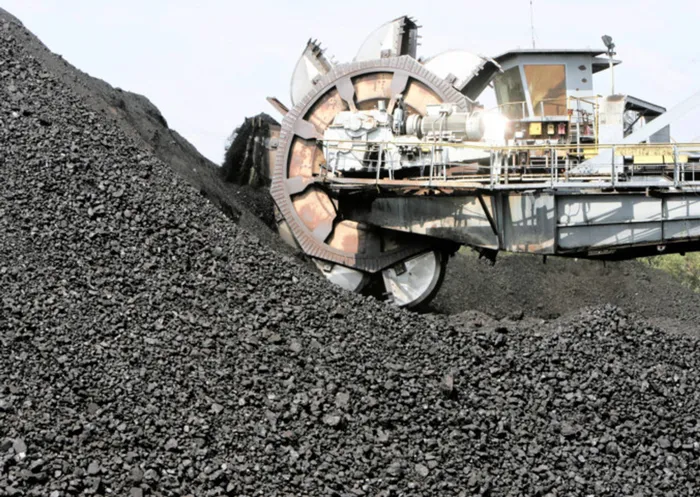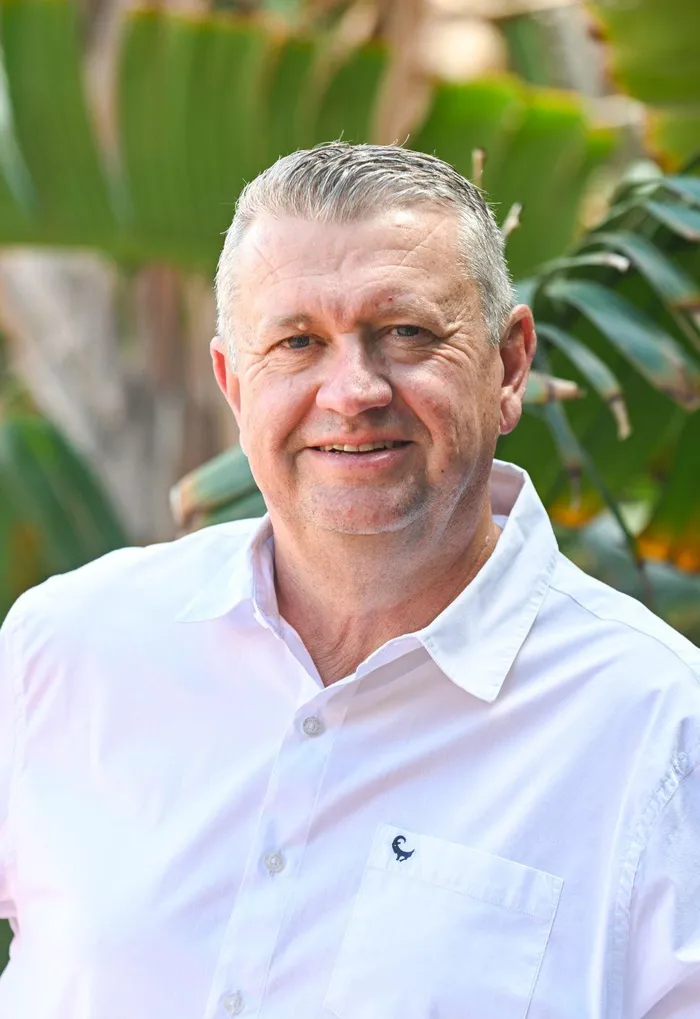Agri-processing and basic service delivery as foundation for a just transition in Mpumalanga

Coal mining, like any extractive industry, leads to depleted reserves and closure liabilities, says the author.
Image: Bloomberg
One of the realities facing South Africa is, that without policy intervention, Mpumalanga’s economic contraction will start to increase rapidly. This is the result of a combination of factors including the reliance of the Mpumalanga economy on the extraction of coal and the failure of municipalities to deliver basic services.
Coal mining, like any extractive industry, leads to depleted reserves and closure liabilities. This is evident in the many ghost towns scattered all over the South African landscape. The mine closure challenge is how to create meaningful economic activity after mining has stopped and how to rehabilitate the area to a state in which the negative environmental impacts of mining are sufficiently mitigated.
One of these challenges, how to create meaningful economic activity could be solved by following a pragmatic approach using the policy instruments as proposed in the “South Africa’s Energy Sector Investment Requirements to Achieve Energy Security and Net Zero Goals by 2050” study. The study confirms that the Green Industrialisation (GI) scenario through 2030 and 2040, a high-renewables system supported by flexible generation and batteries, with a spend profile that front-loads grid investment and build-out capital, is the preferred scenario.
The GI scenario does help to bring a solution to the Mpumalanga challenge of economic contraction, and longer term job losses as a result of an economy reliant on a single extractive industry. The question of how the GI scenario will impact Mpumalanga, has been explored and partially answered using macro- and micro-economic studies.
The micro study confirms the increased risk for workers in the Mpumalanga coal value chain. To address these challenges, the micro-study develops a just transition policy matrix and six structured policy packages built from four instruments: income support, training and reskilling, placement services and community and household support.
Let’s delve deeper into two of these policy packages; the Community Development and Livelihood Diversification package and the Provincial Economic Diversification and Investment Facility for private investors and municipalities.
The Community Development and Livelihood Diversification package focuses on community enterprise support, local infrastructure and household resilience interventions while the Provincial Economic Diversification and Investment Facility’s objective is to stimulate new industries in Mpumalanga including battery manufacturing, solar component assembly, logistics, biomass and agri-processing.
Agri-processing is a real opportunity and one Mpumalanga should focus on. We should be aware that if we implemented the Integrated Resource Plan 2019 (IRP-2019) and decommissioned coal fired power stations as per the plan, we would have released 170 billion litres of water per annum for use in agri-related industries. To translate this volume of water into a tangible and more understandable number, it is 220 liter of water per day for 180 million people, or three times South Africa’s population. What is more, most of the water reticulation infrastructure already exists.
Agri-industrial parks could be developed close to these retired coal fired power station sites. The important part is that we should forward integrate agri-processing as far as possible to replace lost opportunity where beneficiation of coal and other mineral products are becoming a challenge. The agri industry is known for its employment intensive characteristics. The vision should be to become a preferred supplier of basic healthy food for the local communities while targeting high value packaged food for the export market.
This will, however, only be possible if basic service delivery problems in Mpumalanga municipalities are addressed timeously. In a recent presentation before Parliament’s Portfolio Committee on Electricity and Energy, Eskom has listed the worst offender municipalities if it comes to non-payment of the Eskom bulk electricity accounts. eMalahleni, Govan Mbeki, Lekwa, Thaba Chweu and City of Mbombela form part of the list. Together they are responsible for R25 billion of the total debt owed by municipalities to Eskom. That is a staggering 25% of the total debt owed to Eskom concentrated in one of the nine provinces.
There are solutions to assist these municipalities to rectify their challenges by partnering with the private sector and fix their distribution grids, metering, billing and revenue collection. The challenge is that National Treasury is opposing these partnerships. Examples of this opposition can be seen in municipalities like Mafube in the Free State and Nama-Koi in the Northern Cape where Rural
Maintenance’s support made a big difference. The solution to ensuring a just transition in Mpumalanga is therefore not only a function of enabling new policies as determined in the micro-economic study, but also making sure that governance in local government is enhanced and basic services get the attention and focus they need. Important to understand that governance for governance’ sake is meaningless. Good governance should lead to increased delivery of basic services to all citizens, including the poor. Why would National Treasury oppose that?
The government and the private sector should collaborate to address our massive basic delivery challenges. Only then can we start looking forward to a just transition in Mpumalanga without severe socio-economic disruption.

Thomas Garner holds a Mechanical Engineering degree from the University of Pretoria and an MBA from the University of Stellenbosch Business School.
Image: Supplied
Thomas Garner holds a Mechanical Engineering degree from the University of Pretoria and an MBA from the University of Stellenbosch Business School. Thomas is self-employed focusing on energy, energy related critical minerals, water and communities. He is a Fellow of the South African Academy of Engineering and a Management Committee member of the South African Independent Power Producers Association.
*** The views expressed here do not necessarily represent those of Independent Media or IOL.
BUSINESS REPORT